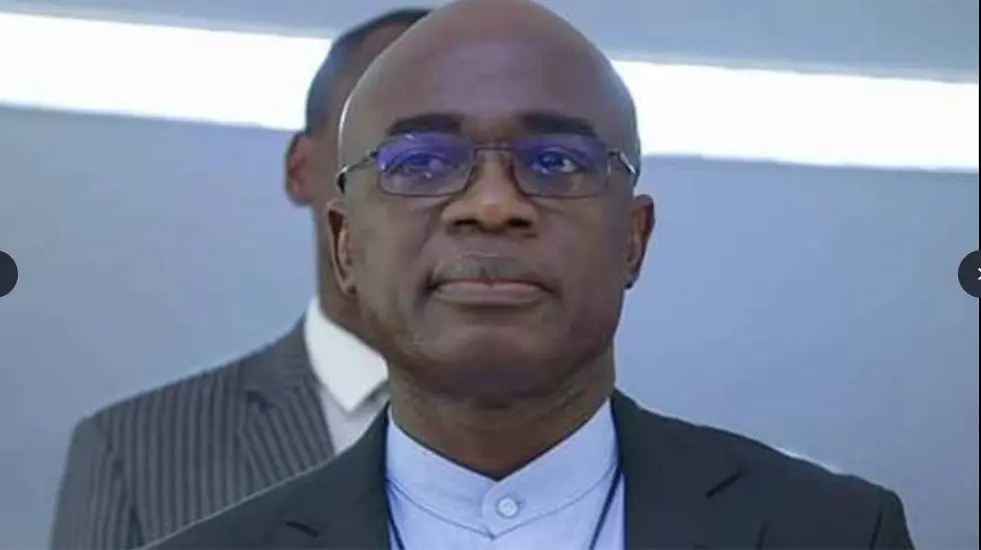• Court lacks jurisdiction, Odinkalu, Sani, others, declare
• Adegboruwa calls for calm
Amid a pushback by the Kano State government, a Federal High Court sitting in Kano yesterday reversed the dethronement of Emir Aminu Ado-Bayero and four other Emirs of Bichi, Rano, Karaye and Gaya Emirates.
The Court set aside all steps taken by the Kano State Government to repeal the Kano Emirates Council Law (2019), which split the Kano Emirates into five namely: Kano, Bichi, Rano, Karaye and Gaya Emirates with First Class Emirs.
But in a swift reaction, the Kano State government has said the ruling shows Alhaji Muhammadu Sanusi II is still the Emir of Kano.
The State Attorney General and Commissioner for Justice, Haruna Isah Dederi, said this during a press conference held at the Government House Thursday evening.
The trial judge, Abdullahi Muhammad Liman, set aside the repeal of Kano Emirate Law (2019) by the State House of Assembly and ordered all the parties to maintain the status quo.
Dederi, however, said the Kano State Government acknowledged the ruling by the Federal High Court regarding the Kano Emirates Council (Repeal) Law, 2024 and views same as upholding the rule of law.
“By the ruling of the Court, it has unequivocally. reaffirmed the validity of the law passed by Kano State House of Assembly and assented to by His Excellency the Executive Governor of Kano State on Thursday 23rd May 2024 by 5:10 pm. This part of the judgment is very fundamental to the entire matter.
“Further implication of the ruling is that all actions done by the Government before the emergence of the interim order of the honourable Court, are equally validated. This means that the abolishing of the Five Emirates created in 2019 is validated and the deposition of the Five emirs is also sustained by the Federal High Court. By implication, this means that Muhammadu Sanusi II remains the emir of Kano.
“The judge also granted our application for the stay of proceedings until the Court of Appeal deals with the appeal before it on jurisdiction. Happily, the signing of the law and the reinstatement of His Highness, Emir
Muhammad Sanusi II were done on 23rd May, 2024 before the emergence of the Interim Order which was served on us on Monday 27th May, 2024.”
It will be recalled that Governor Abba Kabir Yusuf had assented to the Kano Emirate (repeal) Law (2024) which gave room to the deposition of Ado Bayero and four other Emirs of Bichi, Rano, Karaye and Gaya.
Consequently, Governor Yusuf acting on the strength of the abrogation, re-appointed and installed the former Emir of Kano, Lamido Muhammad Sanusi 11 as the 16th Emir of Kano, bringing Kano to its old traditional arrangement as one Emirate.
Dissatisfied with this development, a king-maker in Kano Emirate, Aminu Babba Danagundi, the Sarkin Dawaki Babba, challenged in court, the abrogation of the Emirate Council Law (2019), through his counsel, Chikaosolu Ojukwu (SAN).
The court, which delivered a verdict yesterday, also nullified all the actions taken after the reinstatement.
Justice Liman said: “I hereby order that every step taken by the Government is hereby nullified and becomes null and invalid and that this does not affect the validity of the repealed Emirates Law but actions taken by the Governor, which includes the assenting to the Law and the reappointment (of Sanusi).
“I have listened to the audio of the governor both in Hausa and English after assenting to the Law, and I am convinced that the respondents are aware of the order of maintaining status quo pending the hearing and determination of the motions on notice in the court.
“Having been satisfied that the respondents are aware of the court order, the court in the exercise of its powers set aside an action because it is in violation of the court’s order, I think it is a very serious matter for anyone to flout the orders of the court and go scot free with it.”
He said the catastrophic situation could have been averted if the respondents followed due processes by complying with the court order, which would still have allowed them to carry out their assignments.
He noted that the respondents however decided to act according to their whims and caprices, a situation which he said landed them in a serious mess.
Responding through his X account, Prof Chidi Odinkalu, fumed that the court lacks jurisdiction to so act.
He said: “Today in Kano, Abdullahi Liman, a judge of the Federal High Court has overruled long-standing Supreme Court of Nigeria precedent, assumed jurisdiction he does not have to grant reliefs the parties did not ask for in exercise of powers that he lacks.
“What Liman has done is not surprising. The inclination of this judgment is already well known well ahead of today. The scandals in this judgment will be fully disclosed at the right time.”
Also, Kano-based lawyer, Abubakar Sani, agreed with the argument that the judge lacks jurisdiction.
Sani said since the decision of the Supreme Court in Tukur vs the Government of Gongola State (1988), it has been settled beyond peradventure that the Federal High Court lacks jurisdiction over chieftaincy matters – even for enforcement of fundamental rights.
“It makes no difference that the case of Aminu Ado Bayero was the validity of a law enacted by the State House of Assembly,” he argued.
Again, he noted that once an appeal has been entered at the Court of Appeal (with the transmission of the record of appeal from the trial court or the court below), the latter court becomes functus officio – not before.
“It is the height of judicial impertinence for the lower court to insist on hearing a matter despite its awareness of the pendency of an appeal against its earlier decision in the same matter,” he declared.
Okueyelegbe S. Maliki, an Abuja-based lawyer and rights activist, said the jurisdiction of the Federal High Court is expressly provided by section 251 of the Constitution.
This jurisdiction, he said, is restricted to the items listed under the said section.
According to him, issues relating to chieftaincy affairs are excluded by this section.
He reiterated that the Supreme Court has pronounced in several cases that the Federal High Court has no jurisdiction in chieftaincy matters.
“The express mention of one thing excludes that which was not mentioned. The attempt to drag Federal Government Agencies to chieftaincy matters does not confer jurisdiction in chieftaincy matters on the Federal High Court,” he said, adding that no situation should warrant a High Court to continue to hear a matter already before the Appellate Court.
He held that once the Court of Appeal is seized of a matter, the High Court is completely divested of the jurisdiction to continue to hear the matter.
The High Court shall certainly be running on a collision course with the Court of Appeal, he said, stressing that any of such an act negates the principle of judicial hierarchy.
However, human rights lawyer, Ebun Olu Adegboruwa (SAN) has called for calm and to allow peace to reign.
The judges, he said, may err or make some mistakes in the cause of delivering their decisions, but as a growing democracy, they should maintain the attitude of compliance with the decision handed down by superior courts, because there are avenues for testing or challenging those decisions either in the Court of appeal even up to Supreme Court.
“Our expectation within the legal profession is that dichotomy and division have been created in respect of the powers of the various courts, Federal High Court, State High Court and National Industrial Court.
“So we didn’t expect that the Federal High Court, being a court created for federal matters, will be going to chieftaincy, but allow the court to decide as best as it deemed fit.
“Parties that are not satisfied with the decision of the court or aggrieved will have the opportunity to test the accuracy of that decision on appeal.
“I appeal to everybody to remain calm, the law that gives the plaintiff opportunity to go to court also gives to the defendant the right to challenge the court decision on appeal,” he advised.
Reacting to the decision, the Kano state government argued that the judgment of the court did not remove the Emir Sanusi or reinstate the one deposed.
A statement by the State said: “The law is still the law, but actions carried out in the execution of the law are set aside.”
The post Sanusi remains Emir says Kano govt amid court ruling on Ado-Bayero, four others appeared first on Guardian Nigeria News.
Discover more from HOT SOURCE NEWS
Subscribe to get the latest posts sent to your email.


